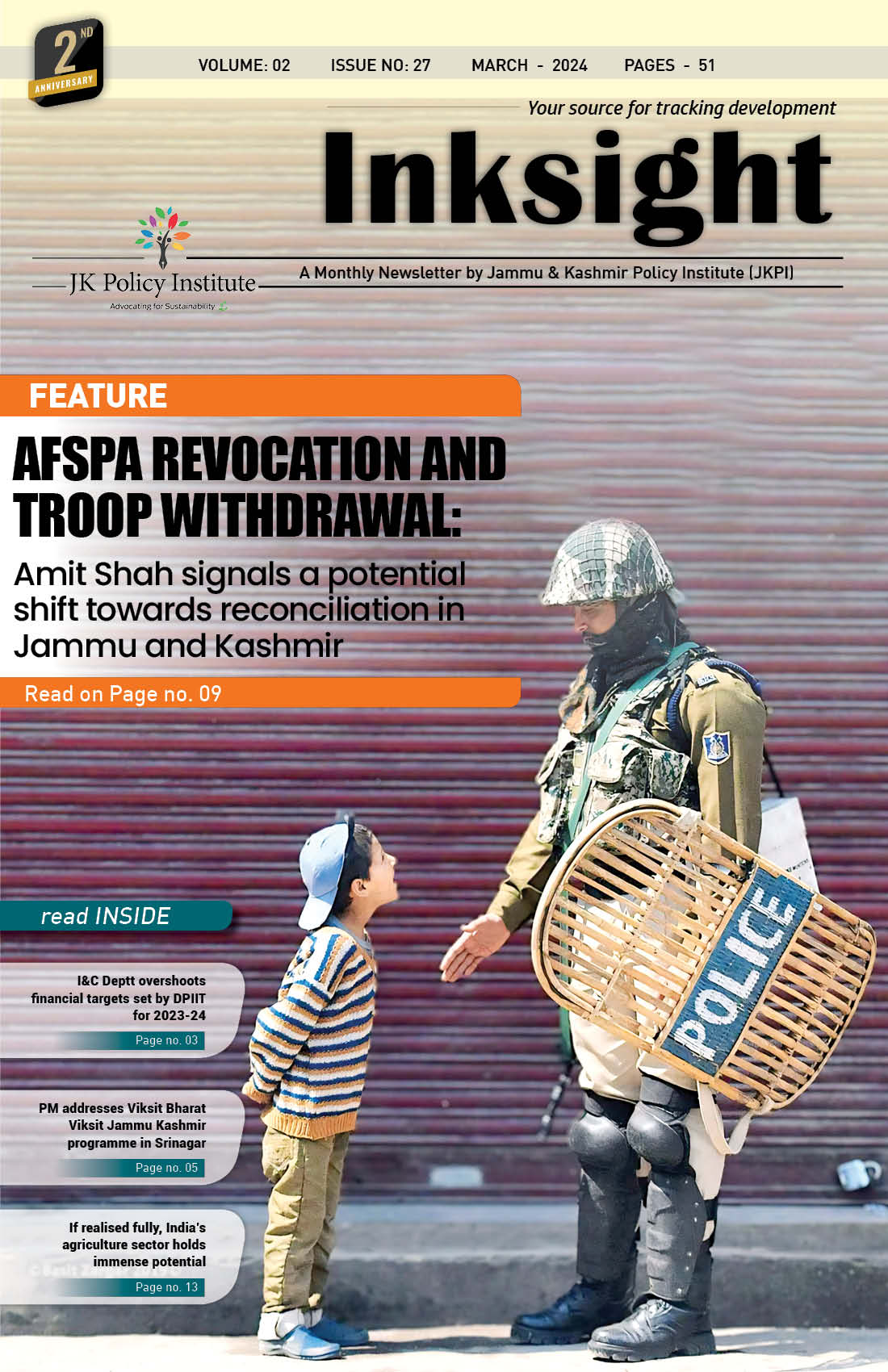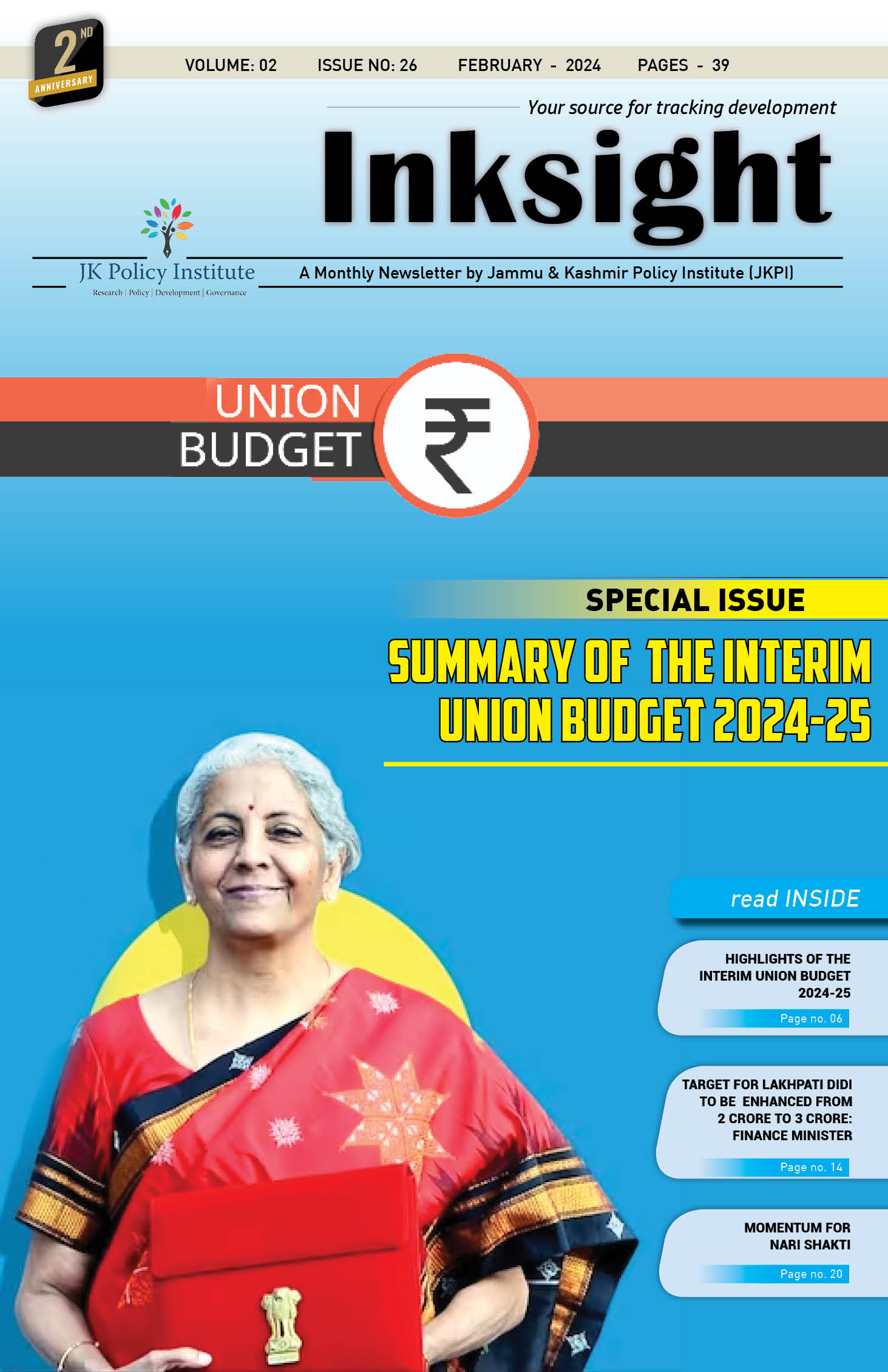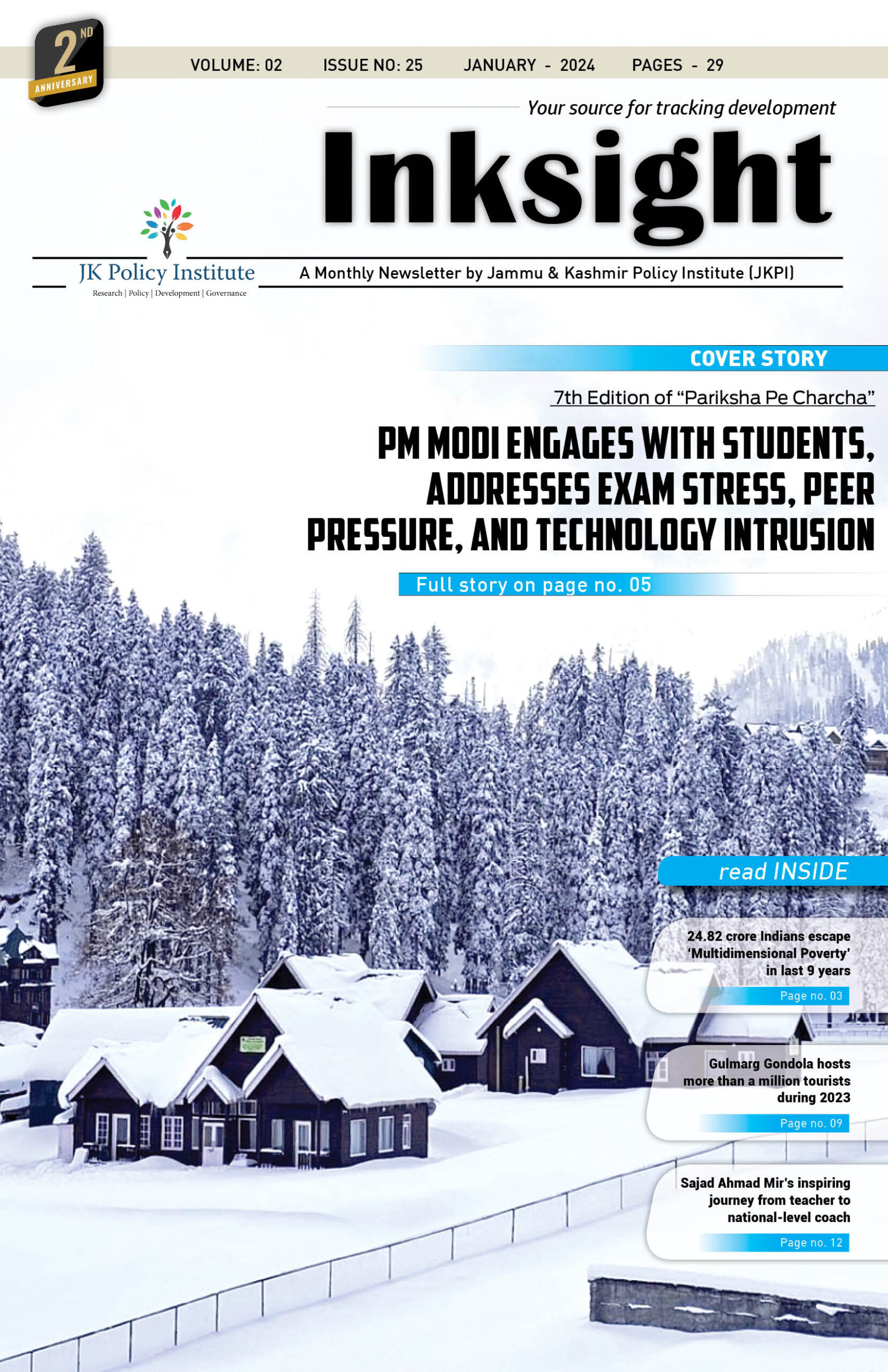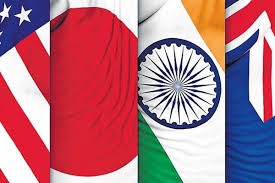Quadrilateral Security Dialogue which is better known as QUAD is a grouping of India, the United States, Australia, and Japan has its primary focus on the security of the Indo-Pacific region. Lately, the States have comprehended the importance of maritime mandala being a linchpin to the development of the nation. On 11th February 2022, Australia hosted the fourth QUAD meeting amidst the Russia-Ukraine crisis. All the foreign ministers culminated together to talk turkey on the matters which are of legitimate security concerns for the alliance together. The Ministers reaffirmed to protect the sovereignty and the interest of the countries in the Indo-Pacific region. It was a clear indication of China’s policy of expansion and economical influence in the Indo-Pacific region by patronizing smaller nations like Tonga, Samoa, and Vanuatu. The persistent claim of China over the nine-dash line in the South China Sea whilst overlapping major economic interests of countries like Indonesia, Vietnam, Taiwan, Malaysia, and the Philippines, is a threat to all the stakeholders playing around the region.
The QUAD partnership also extends to other dynamics like vaccine diplomacy wherein QUAD partners have delivered 500 million doses during the pandemic and our advancing to provide 1.3 billion vaccine doses collectively around the globe. They have committed to working together in addressing issues like terrorism, disinformation, cyberwarfare, and strengthening the response to disaster management, maritime security, and safe navigation. Meanwhile, the Joint Statement by all the Foreign Ministers exhibited adherence to international law and security in respect to the maritime laws elucidated in the UN Convention on the Law of Sea. (UNCLOS) Thereafter, QUAD is determined to forge the relationship ahead with the regional partners in the Western, Central, and Eastern Indo-Pacific region. They have resolutely to burnish its logistics to bolster its maritime domain via exchange of information, safeguarding their capacity to instigate the growth of offshore assets, countering challenges, such as illegal fishing, piracy, and furthering the security of sea lines of communication.
Lastly, the group denounced all forms of terrorism and single-mindedly decided to eliminate all the channels that assist in carrying out terrorist activities and they exhorted all the countries to not cater to the objectives of terrorists or provide safe sanctuaries to them to carry out terrorist activities or violent extremism. QUAD will take necessary steps to establish supply-chains for the smooth functioning of mercantile operations in the Indo-Pacific region and will continue to maintain the rule-based order that stems from international law and protects the inviolability of the territory of regional countries.
After the tsunami in the Indian Ocean, India, Japan, the US, and Australia came forward to provide relief to the concerned regions hit by the disaster. The informal strategic grouping started taking its specific shape at the juncture when former PM of Japan, Shinzo Abe, broached the notion of QUAD as a formal security alliance and in 2012, Abe pushed the QUAD to shift its focus from the peripheral issues and make the security of Indo-Pacific region as the fulcrum of alliance and its objective. Abe could discern the theater of opportunities available for all the stakeholders in the region if the nations ought to raise solitary voices against any expansionist policies of China. QUAD countries sharing a distinctive historical and geographical past seems to have narrowed down in being adamant on creating a “free, open and prosperous” Indo-Pacific region.
The QUAD time and again has pitched its share of controversy wherein experts have tried to denominate it as new NATO but since the QUAD lacks the driving force to enforce the strategies resulting in a change of actions from the adversary, China, in the Indo-Pacific region. Unlike NATO, the QUAD does not vouch for joint defence rather it chooses to conduct military exercises like the Malabar exercise wherein the navies of India, the US, Japan, and Australia participate to showcase the spirit of QUAD but it still lacks the teeth. The future in diplomacy is quite mutable and with the QUAD being not rigid can also change its trajectory to a permanent body backed with authority rather than a source to impart the logistic support. During a conflict that may go beyond the difference in ideologies, QUAD may change its course and basic structure but for now, the flexible nature of QUAD is allowing it to have minilateral and plurilateral alliances whilst bringing in inclusiveness and point of convergence from other stakeholders in the Indo-Pacific region. The countries within QUAD are maneuvering the way towards the Indo-Pacific region by formulating their policies to nurture their alliances with other nations, deeming to have tactical importance in the region.
A Glimpse of India’s Indo-Pacific Policy
At this period, when almost 65% of the world’s commercial trade is carried through the passage of Indo-Pacific waters, it becomes essential for India to apprehend that maritime security is pivot in shaping India’s strategic ability in the international arena. Henceforth, India has enlisted support from other nations by paving the way for forums like Indo-Pacific Oceans Initiative (IPOI), Security and Growth for All in the Region (SAGAR) and subsequently took a step, in continuance of promoting free and open Indo-Pacific region by setting up an Indo-Pacific wing in Ministry of External Affairs in 2019. The office is meant to conduct its work under Indian Ocean Rim Association, the Association for Southeast Nations, and QUAD.
IPOI as a policy of India towards ocean governance was launched on 4 November 2019, under the leadership of Prime Minister Narendra Modi at the East Asia Summit in Bangkok. IPOI appears to take grip for the safety of the maritime domain and to deter the dominance of one nation in the region. India is expanding its ambit encompassing both the Eastern Indian Ocean, Western Indian Ocean, and West Pacific Ocean under Indo-Pacific Ocean Initiative. The region has remained within the state of flux for a long time and countries like Indonesia, India, Japan, Vietnam, France, the US, the UK, European Union, Indonesia, etc. have begun to re-orient their maritime policies vis-à-vis the region. It is recommended for all the countries and especially for India to follow the principle of cooperation rather than contestation to avoid any serious confrontations in the future.
The Western Indian Ocean Region under the Indo-Pacific regime is a region rich in natural resources, gauging the value to be US $333.8 billion. The region is judiciously chosen by India under knowing its strategic and economical importance. From the starting, India has looked upon “Act East Policy” but now it is eventually integrating it with the “Act West Strategy”. Thus India has widened the landscape of maritime diplomacy by including the Western Indian Ocean and the Arabian Sea under the umbrella of Indo-Pacific Policy.
India in the past has upheld the principles of cooperation rather than following a continental approach in between the ripples created by the controversies in the Indo-Pacific region. India has been successful in forming its bilateral relationship with Indonesia and Vietnam in line with IPOI and the ASEAN’s Outlook wherein Southeast Asian nations have congregated to build peace, stability, and connectivity within the Indo-Pacific framework. Minilateral, plurilateral and bilateral alliances like India-Australia-Japan, India-US-Japan, and India-Australia-Indonesia are the mainstay to India’s vision of seeking balance and prosperity in the region to have internal stability and coherence in India’s maritime security too.
Problem-based coalitions will assist QUAD countries and India to utilize African littorals in the Western Ocean Region and all the connected SOPs. Meanwhile, the traditional and non-traditional threats that pose a continuous threat in the Indo-Pacific region in toto can be achieved through firm standing and under the aegis of cooperation from the stakeholders in and beyond the region.
India’s involvement with African littorals can be seen from the closer engagement with African littoral states within the Indian Ocean Rim Association and the Indian Ocean Naval Symposium. India has to emerge with a state of readiness in the Western Indian Ocean Region (WIOR) following the evaluation of lack of security support from African states due to their internal turmoil. It’s a region of burgeoning oil and mining industries with concomitant rich resources and hence it makes the region encountering high naval encounters and global trade carried through African waters. Within the context, India is lending its support to Africa via military aid, training of Africa naval officers by the Indian Navy Administration, Conducting Hydrographic Surveys and anti-piracy patrols along the entire route, and maintaining bilateral relationships with the African States like Kenya, Mozambique, Tanzania, Djibouti, Madagascar, Seychelles, and Comoros.
Seven Pillars of IPOI include Maritime Security, Maritime Ecology, Maritime Resources, Capacity-Building, Information Sharing, Maritime Connectivity and Transport, Disaster Management, Science Technology, and Academic Cooperation. Moreover, Vietnam being a key player in its territorial contestation over the resources within the scope of the nine-dash-line claimed by China, collaborated with India for its compliance to seven pillars of IPOI.
Competition is not a viable solution for India but it seems that India has opted to go back to its roots of diplomacy by following Kautilya’s Arthashastra, demonstrating the concept of Yogakshema which explains that People’s safety and welfare are of prime importance and thus the security of a region hinges on the internal security of any nation and its citizen. While Arthashastra elaborates on, to choose to work on internal balancing over the external issues but where the nation is not able to cope with its internal adroitness, it is crucial to utilize cooperation and partnerships (Samavaya) like in the maritime domain.
QUAD represents an ideal example of the Kautilya’s statecraft in the sense that the QUAD countries have collaborated on the issues whilst sharing the threats, vision, and commitments in respect to the Indo-Pacific region. Though QUAD has to build a solid structure backed by strong enforcement to face the belligerence of China’s expansionist policies. QUAD’s intention to bring countries like Vietnam, South Korea, and others forming QUAD plus alliance will propel them in their drive to achieve sustainability in the Indo-Pacific region and thus QUAD has two options 1) Using its flexibility as strength to form other alliances within or beyond the Indo-Pacific region to fetch cooperation to be on the same page. 2) The QUAD has to build its capacity to be a driving force in the near future by either acting as a permanent decision-making body.
China’s Response
China is against the alliance since its commencement and recently Beijing accused OUAD as being a “tool to contain China” and has emphatically stated to “abandon the Cold War mentality” The statements came at the time when China has made its aggressive presence in the Indo-Pacific region through laying infrastructures like Belt and Road Initiative and Asian Infrastructure Investment Bank. There are palpable claims by China over the South China Sea and in April 2020, China announced the setting up of administrative units in the Parcel and Spratly islands and there have been observations by Pentagon, addressing the concerns related to military escalation in exercises by launching medium-range missiles between the route stretching from Hainan Island to Paracel Island. China has explicitly mentioned QUAD as “seafoam” in the Pacific or the Indian Ocean which means that they raise for some time and eventually they will disappear. This is rhetoric to QUAD’s structure and alliance but China is surely hesitant about the future expansion within the QUAD or the cooperation spurring by the efforts of QUAD countries with other nations beyond the QUAD grouping which could potentially result in striking a balance in the Indo-Pacific region.
India has to take concrete steps to rest to develop its Blue Economy. Government to Government Initiatives, People to People contacts, Building Infrastructure, and Increased Funding for the Indian Navy and its projects for the maritime domain are some prime areas for India to look into. India also has to take a comprehensive approach from top-bottom and vice versa to govern the ocean and simultaneously form strategic partnerships.
REFERENCES
1) https://www.orfonline.org/expert-speak/indias-role-in-the-emerging-dynamics-of-the-indo-pacific/
3) https://www.orfonline.org/research/india-in-the-indo-pacific/
5) https://asiasociety.org/policy-institute/why-quad-alarms-china
6)https://www.thehindu.com/news/national/quad-meets-amid-tensions-over-ukraine/article65186149.ece
7) https://www.globaltimes.cn/page/202103/1218189.shtml
9) https://asiasociety.org/switzerland/oxford-debate-quad-part-debate-not-driving-force
12) Rory Medcalf, (November, 2019), Many Players, Many Layers: The Indo-Pacific Long Game, SWS Working Paper, https://www.swp-berlin.org/fileadmin/contents/products/projekt_papiere/BCAS_2019_Medcalf_Indo-Pacific_Long_Game.pdf





Leave a Reply
You must belogged in to post a comment.